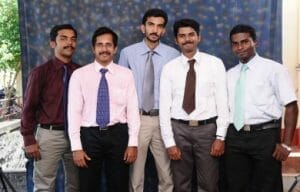
Correspondence courses or any other certificates, diplomas or degrees are not suitable for registration as a homoeopathic practitioner in SA.
It consists of a five year full-time course in general medicine, homeopathy, allopathic pharmacology and homeopharmaceutics, followed by an additional one year post-graduate clinical internship, adding up to a total of six years of studies and experiential learning before registration.
Training is provided by the Durban University of Technology and the University of Johannesburg, or to SA Qualifications Authority (SAQA) and AHPCSA approved equivalent.
The Chiropractors, Homoeopaths and Allied Health Professions Act (Act 83 of 1982) specifically governs and regulates the practice of homeopathy in South Africa.
Homeopathy has been a registerable profession since 1974 and there are presently more than 560 registered homeopathy practitioners. It is prohibited for anyone who is not a registered practitioner to practise homeopathy.
Homeopathy is fully recognised and integrated in South Africa and a registered practitioner may use the title, Doctor. Although Homeopathy is not yet included in the public healthcare system, expenses for consultations and medicines are fully refunded by all private medical schemes.
The scope of practice of a homeopathic practitioner is virtually the same as that of an allopathic medical practitioner, with the exception of surgery. All aspects relating to the import, manufacture, distribution and access to medicines, including homeopathic medicines are governed by the Medicines and Related Substances Control Act (Act 101 of 1965).
The draft amendments to Act 101 provide that homeopathic practitioners may also prescribe allopathic medicines. A homeopath may compound, prepare, manipulate, prescribe and dispense any homeopathic medicine for his/her own patients, both in the crude and homeopathic/potentised form.
By law homeopaths may carry out any mental or physical examination. Legislation compels allopathic and homeopathic practitioners to provide a medical diagnosis. Legislation applies equally to both allopathic and homeopathic practitioners.
The five-year full-time curriculum provided by the Durban University of Technology and the University of Johannesburg consists of:
Year 1
- Anatomy I
- Physiology I
- Biology I
- Chemistry I
- Physics I
- Philosophy, Principles and History of homeopathy I
Year 2
- Anatomy II
- Physiology II
- Biochemistry II
- Medical Microbiology II
- Epidemiology I
- General Pathology II
- Social Studies I
Year 3
- Diagnostics III
- Materia Medica III
- Systemic Pathology III
- Psychopathology II
- Auxiliary Therapeutics III
Year 4 (B Tech*)
- Diagnostics IV
- Materia Medica IV
- Clinical Homeopathy IV
- Homeopharmaceutics IV
- Research Methods and Techniques I
Year 5 (M Tech*)
- Materia Medica V
- Clinical Homeopathy V
- Practice Management and Jurisprudence V
- Research Project and Dissertation I
Students have contact with patients from the third year of study and are required to complete a certain number of hours in a clinic in order to complete a specified training programme.
A Bachelor degree equivalent (B Tech) in homeopathy is obtained after four years full-time studies, but this degree is not conferred and does not result in permission to practise homeopathy. The first and only exit qualification is the Masters Degree in Homeopathy (M.Tech.Hom) which is conferred only at the end of the fifth year of training.
A PhD may be obtained in one of two ways; five years full-time masters degree studies, followed continuously by a further three years PhD studies, followed by the one year clinical internship, or five years full-time masters degree studies, followed by the one year clinical internship, during which they may commence a further four years of part-time PhD studies.
Both allopathic and homeopathic training are state-funded.
The HAS
The Homoeopathic Association of South Africa (HSA) is a voluntary association recognised by the Allied Health Professions Council of SA as the official representative of the Homoeopathic Profession in South Africa.
Durban University of Technology
Department of Homoeopathy
Tel (Departmental Secretary) : +2731 373 2514
Tel (Dr. A. Ross – Head of Department) : +2731 373 2542
E-mail : ashleyr@dut.ac.za
Website : www.dut.ac.za
University of Johannesburg
Department of Homoeopathy
Tel (Departmental Secretary): +2711 559 6218
Tel : (Dr. R. Razlog – Head of Department) : +2711 559 6233
E-mail : radmilar@uj.ac.za
Website : www.uj.ac.za
Source :
- ECCH Bulletin
- Homeopathic Association of South Africa
- AHPCSA

Be the first to comment